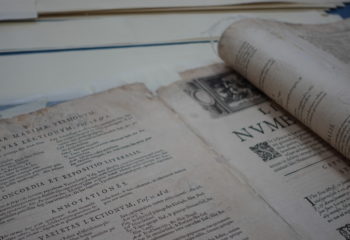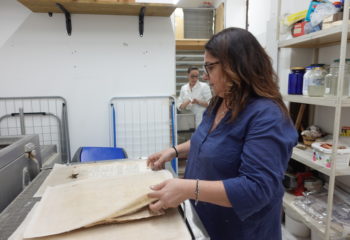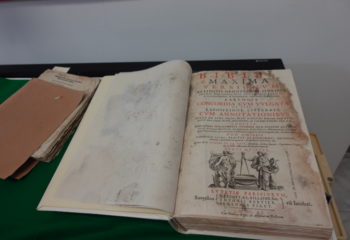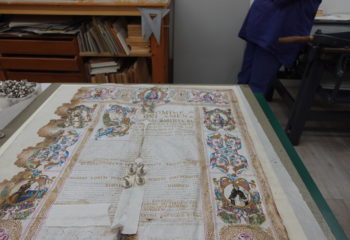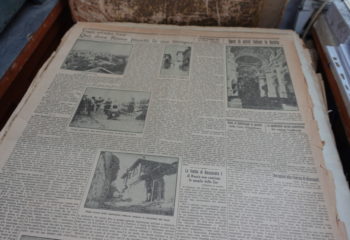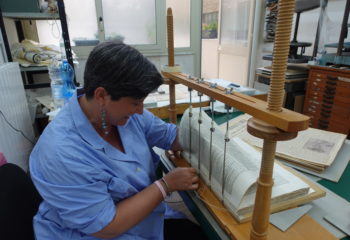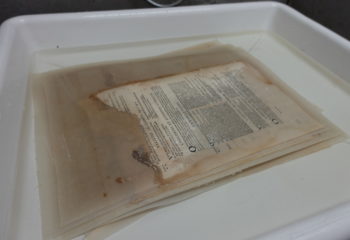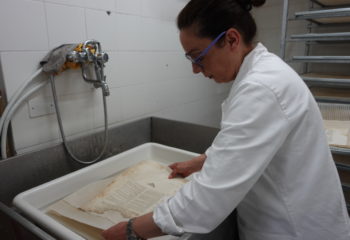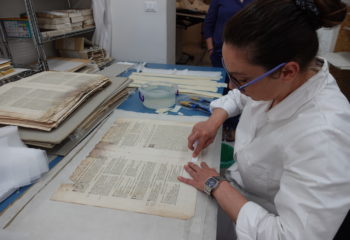Leggi la versione italiana
In Alba Adelfio’s workshop in downtown Palermo, there is a tub filled with water. A tub surrounded by ancient manuscripts, from the 1300s and prints from later periods. The restoration of these precious texts also passes through here.
Libraries and dioceses entrust Giordano Srl, Alba’s workshop, with the restoration of vintage books, maps and newspapers. Here, for one, texts belonging to Garibaldi’s library in Caprera have passed through. Alba started the business 20 years ago with Beatrice and Anna. She learned the art from her father-in-law, Andrea Giordano. She is the protagonist of CNA Storie of June.
Of course, not all paper can be submerged in water. “The material we work on is old, valuable. The inks do not fade. It is also said that the paper sings, because it almost seems to make a sound when it is put out to dry,” Alba explains.
The texts that arrive here are no longer searchable because they crumble at the slightest contact. “Recovery work is a delicate activity, especially when it involves manuscripts of which there is only one copy, while of printed texts it is possible to find multiple copies in different libraries” recalls Alba.
Unique pieces, or materials that are nonetheless invaluable. That is why, on the art of restoration, one must always be ready to take a step back. And, if necessary, start all over again. “Book restoration is reversible,” sums up Alba, who explains, “all our operations are done in a way that can be taken apart. In the days when I worked with my father-in-law, it happened several times that I finished a restoration, but since the paper did not reach the same thickness, we had to take it apart and start all over again.”
Alba, Anna and Beatrice never stop. They have had to deal with many pitfalls. Forced to remain closed during the lockdown, because they inexplicably likened themselves to a tourist business, they have faced difficulties related first to the shortage and then to the rising price of paper. Adding to this is the difficulty of working exclusively with public administrations behind contracted work. “We have managed in twenty years to obtain the second category Os2B, which allows us to participate in tenders up to 500 thousand euros.” Not an easy goal to achieve, “we fought to get this certification. It means working with public contracts, whether with libraries, archives or foundations that preserve paper materials. The problem today is that there are no tenders in Italy, neither big nor small.”
Behind every restoration, there is a project that matures from time to time, supported by experience, entrusted to the care that characterizes the different stages of processing. The figure of her father-in-law Andrea recurs in Alba’s memories. In anecdotes, like the rule that books that are restored are not read. The book is matter, as tangible is the manual skill that is honed by restoring life to precious texts. A craftsmanship that, after years and years of experience, involves all the senses. “I learned from my father-in-law. He could no longer see, but he would know a binding with his eyes closed. He was an extraordinary person, but he didn’t want us to do this work, because it is really of great sacrifice, like any other freelance, craftsman’s work. But I think today he would say we are good at it. Maybe we are not famous, but it doesn’t matter, we like this peace, knowing that we are able to do even great things if we want to do them. And that’s okay.”


